 Recently we were asked to provide a fact check for a speaker who was preparing to share the story of her husband's home funeral. Here are the primary misconceptions around family death-care rights that we expected she might encounter:
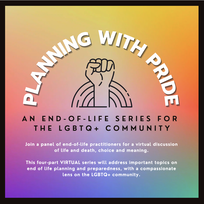 Earlier this year, we helped produce a free four-part series of educational sessions for the LGBTQ+ community. Hosted by Friendly House of Portland's Elder Pride Services, the sessions were recorded and are now available to watch:
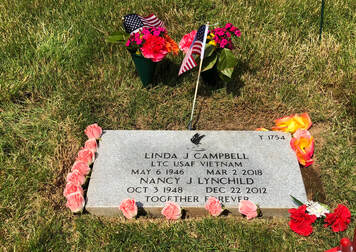 Site contributor Holly Pruett was honored to support Linda Campbell through her fight to be buried with her wife Nancy. Click to learn more. Site contributor Holly Pruett was honored to support Linda Campbell through her fight to be buried with her wife Nancy. Click to learn more. Carol Brownlow got tired of seeing her gay and lesbian friends put back into the closet at their funerals. “It is heart wrenching to hear their authentic lives continue to be rejected by their families even in death,” Carol says. Seeing sexual orientation or gender identity disrespected after a person has died can be a painful experience for the chosen family and community of an LGBTQ+ person. Unless a person has designated someone to make decisions concerning the disposition of their body after death, a legal “chain of command” takes effect. Immediate family are by law the default decision makers regarding physical remains. This blog post and our page Oregon Legal Essentials provide information and further resources to ensure your wishes, identity, and relationships are respected. 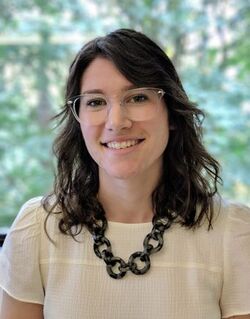 We invited Tamara Ostervoss, Director of the Body Donation Program at Oregon Health & Science University, to provide more information about this method of final disposition and how it can be compatible with family and community-led after-death care. Whole-body donation is an alternative to a traditional funeral and burial or cremation. Donating your body or your loved one’s body to a reputable body donation program supports medical education and research after death. Many people considering this option are unsure of how to plan or what the process may look like. 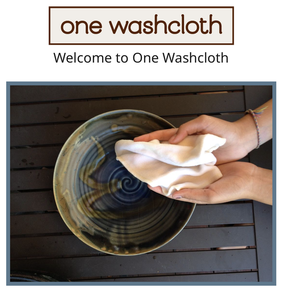 The One Washcloth Project helps families recognize that small things - like bathing a loved ones hands after death - can be done simply and have great meaning The One Washcloth Project helps families recognize that small things - like bathing a loved ones hands after death - can be done simply and have great meaning by Keelia Carver One of the things I like best when talking to people about caring for their own dead is discussing what you are actually paying for when you hire a funeral home’s services. Because it can be hard to understand what you are actually paying for when you hire a funeral director (it certainly was for me!), it can help to break the list of tasks down and think about specific skills that you probably already have. It makes it possible to say “I choose to do this task.” Or “I don’t want to do this task, I’d rather hire it out.” Similar to when you hire a hair dresser, or tax preparer. 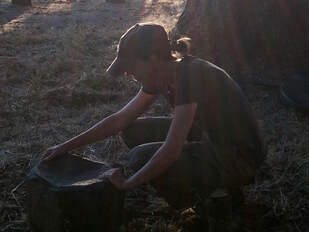 — by Molly Sirois Two weeks before my 80 year-old friend died, she had a stroke. She was well-prepared for such an event, having lived with multiple sclerosis for 56 years. Her POLST form was on the front door, her advance directive completed, and her end-of-life affairs in order. Her friends and family knew she didn’t want any life-sustaining intervention, no food, no water. Not even hospice. Several of us had experience caring for others in their last days, and combined with her doctor’s consultation, we knew what to do: make her as comfortable as possible. The mortuary was on notice.  ~ by Keelia Carver I am overwhelmed with gratitude. I am sobbing at my computer over a one-page hospital form. St. Charles Hospital in Bend, Oregon has enacted a major change. It's a change I wish had been in place when my son Max was pronounced dead in their hospital and they refused to let us take him home for burial - which was our right under Oregon law. The new Release of Body Form is intended for use when the hospital releases a decedent to a family member or friend instead of a paid funeral service provider. It is a simple form requiring name, relationship, and acknowledgement that the requestor will follow all state and federal laws when handling and disposing of the body. With The Seattle Times publishing an alarming and heartbreaking article about cemetery restrictions on all family or community presence at burials - even limited numbers observing social distancing spacing - today the Washington State Department of Licensing issued this clarification:
Licensed funeral homes and cemeteries may conduct funeral services in a funeral home or graveside under the following conditions:
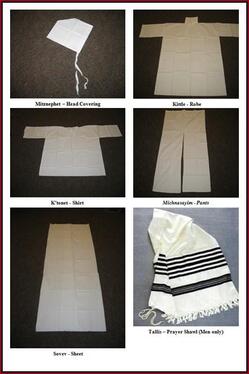 Tachrichim, traditional Jewish burial clothing Tachrichim, traditional Jewish burial clothing While the dominant culture of North America has largely lost touch with family- and community-centered responses to death, there are cultures within the U.S. where these traditions have remained more intact. A recent post on the website The Jew School explains, "The chevra kadisha (“Holy Community”) is a geographically-organized group responsible for all Jewish matters pertaining to death, including arranging people to sit with and guard the body (shemira), and preparation of the body for burial (tahara)." Giulia Fleishman, a third year rabbinical student, shares her personal journey to joining a chevra kadisha, and participating in her first tahara. She describes tahara as "the loving act of ritually washing a deceased person, clothing them in white garments, and enclosing them in a simple pine casket." Giulia's story describes the process: "As they perform taharah, the members of the chevra kadisha chant prayers that ask forgiveness for any mistakes they might make, as well as lines from The Song of Songs that attest to the deceased’s beauty, even in their present state." Read Giulia's full post. |
AuthorOur team contributes to this page, making sure the most recent news is ready for our readers at a glance. Archives
January 2024
Categories |
Learn How To: |
Learn About: |
|
|
|
Oregon Funeral Resources and Education is a non-commercial public interest site dedicated to helping Oregon consumers care for their own dead with or without the assistance of a funeral director. All rights reserved © FuneralPartnership.org
|
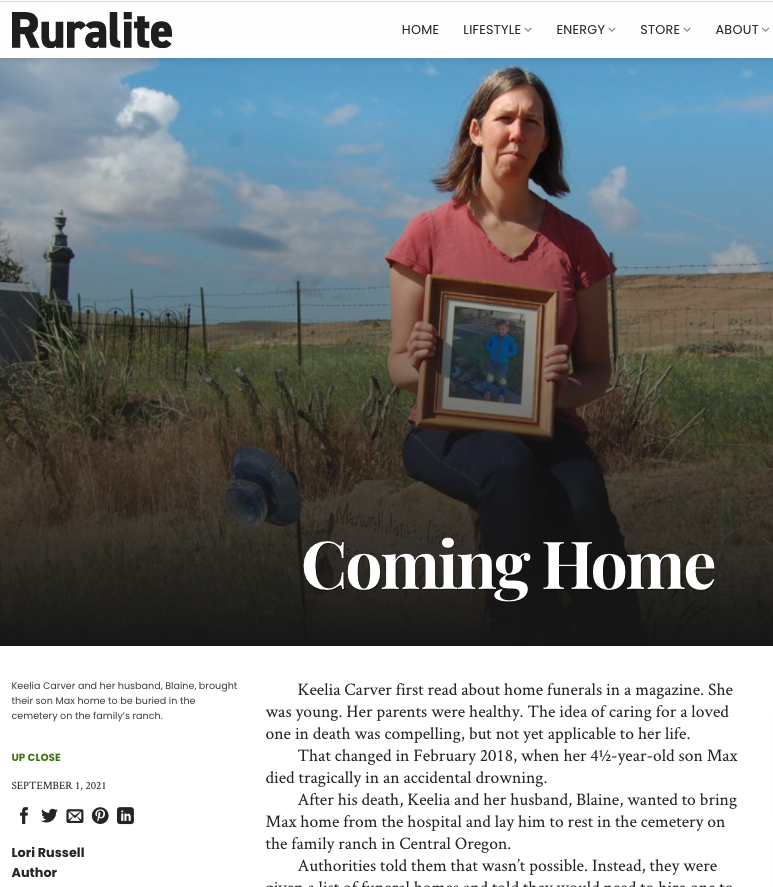
 RSS Feed
RSS Feed
